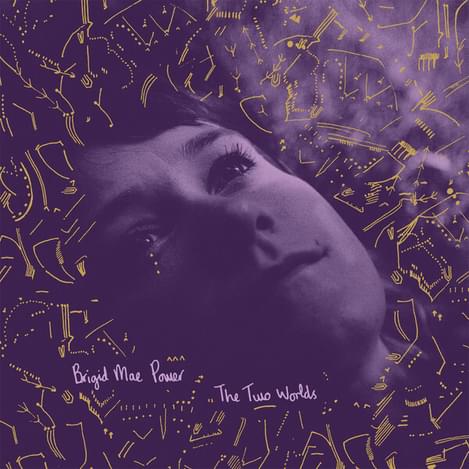Brigid Mae Power turns the volume up and then down again on The Two Worlds
"The Two Worlds"

Quite literally hidden: the more hushed songs on the record seemed to toy with vanishing off the face of the earth as tempos slowed to regions where over-stimulated human brain can struggle to follow without pausing all other activity. Stately, solemn, slow-burning and seriously beautiful, most of The Two Worlds isn’t far removed from its predecessor’s intimate templates.
Only this time Power turns the decibels up as well as down. Lead track "Don't Shut Me Up (Politely)" was released on the same day as Power shared her experiences of an abusive past relationship during the Irish songwriter's residency in New York, which may help explain the atmosphere of a narrowly escaped threat and raw nerve endings that infused the songs on Brigid Mae Power. Bristling with indignant protest and cranked up to a crooked garage band clatter, this electrifying sign-off to someone or something that tried to convince the track's protagonist she's ''someone I'm definitely not'' is noisier, angrier and more forthright than anything Power's done before. As such, it's slightly reminiscent of the plugged-in second album by The Weather Station (aka Tamara Lindeman) or Sharon Van Etten's Tramp, further folk-orientated songwriters now exploring grittier musical settings.
Elsewhere, we're on more familiar ground. Tracks such as "How's Your New Home?" and "Is My Presence In The Room Enough For You?" evolve at their own unhurried pace, reminiscent of vintage late-night torch ballads fuelled by longing and heavy piano chords. Only this time the deceptively plain melodies prove impossible to shake off once they've been heard a few times: there's an ability to wrangle hypnotic potential from repetitive structures here that brings to mind Bill Callahan's finest work. ''The fear still visits me'', Power sings, but there's an air of redemption and recovery about the album, with an all-pervasive melancholy maintained by the stately tempos even as more turbulent elements - the churning bass on "So You've Seen My Limit"- disturb and complicate the contemplative mood.
Producer Peter Broderick (who also plays the instruments not handled by Power) squeezes maximum atmospherics out of a sparse sonic palette and the unadorned melodies that carry Power's clear-eyed observations about the world around her and inside her. Although built out of little besides casually strummed acoustic guitar and skeletal percussion, "I'm Grateful" sounds decidedly epic and uplifting, as befits a tune that balances a familiar sadness with a newfound resilience and self-belief. The mesmerising, woozily swaying slow dance of the warily hopeful title track is even more moving; although the pace is so calm the track's almost standing still, it builds a formidable momentum atop some ghostly organ chords, as Power's voice - which veers between soothing balm, transcendental ululations and a sharp warning bell throughout the album - channels the sepia-tinged ache of Karen Dalton.
Get the Best Fit take on the week in music direct to your inbox every Friday

Tunde Adebimpe
Thee Black Boltz

Julien Baker & TORRES
Send A Prayer My Way

Bon Iver
SABLE, fABLE





